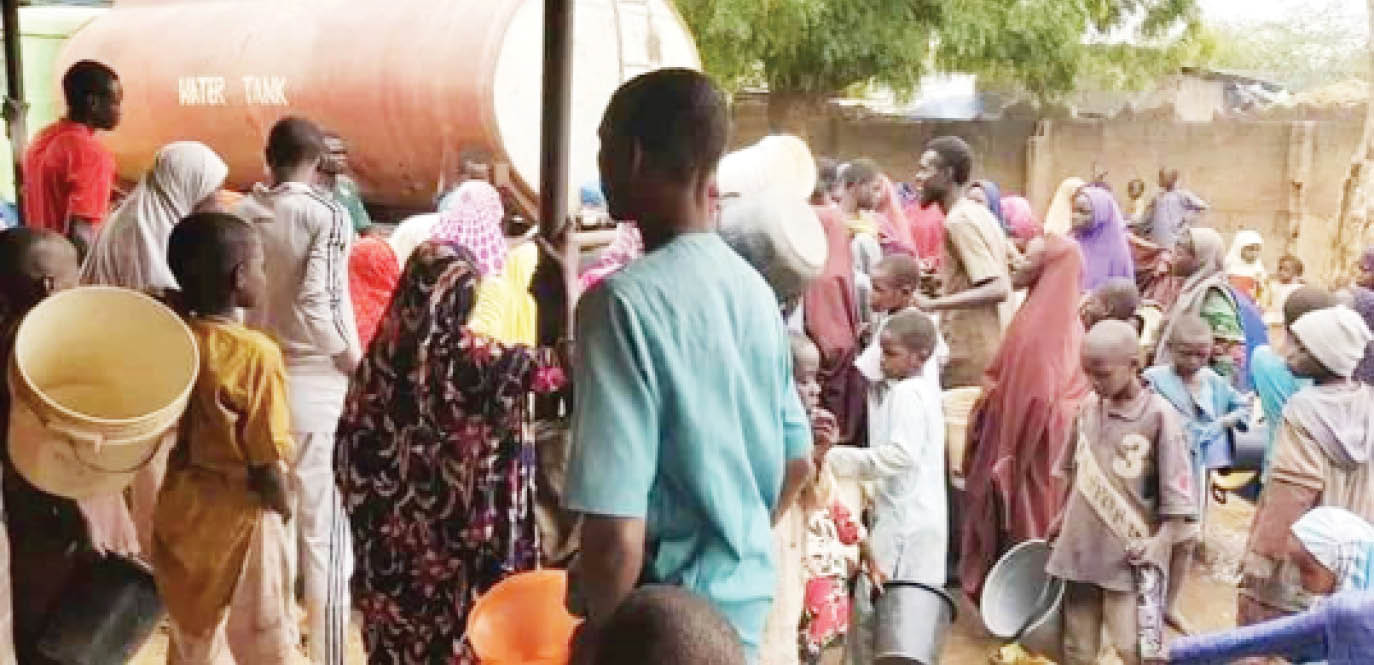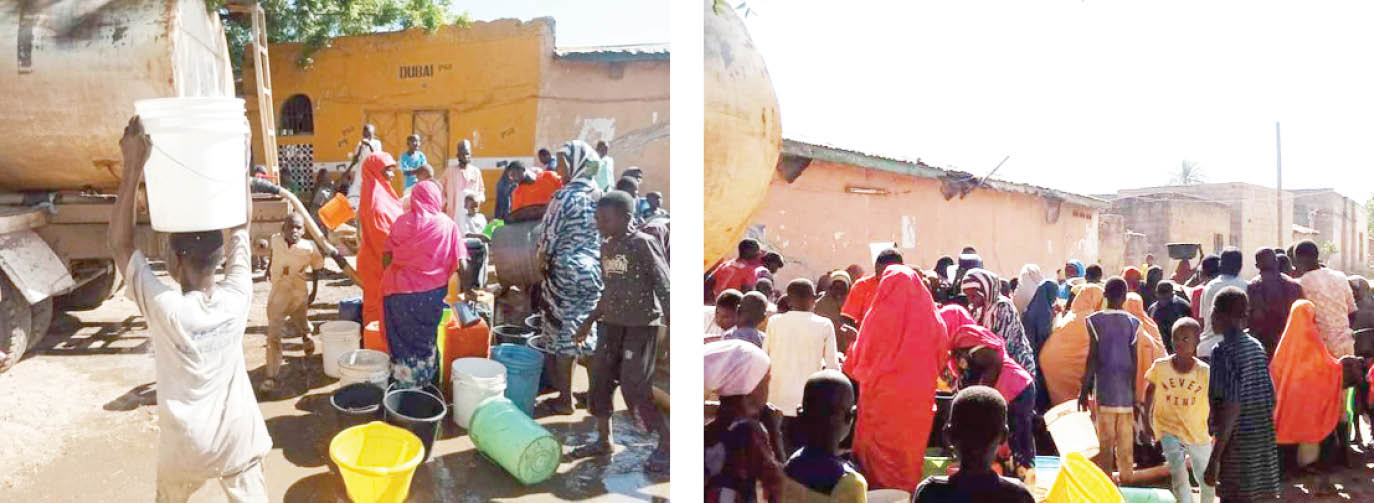How vandals threw Yobe capital into water scarcity
The vandalisation of electricity transmission lines by suspected Boko Haram terrorists three months ago is still having effects on the residents of Damaturu, the Yobe State capital, as they continue to face acute water shortage. The suspected Boko Haram fighters vandalised electricity transmission towers owned by the Transmission Company of Nigeria (TCN) for the second […]

how vandals threw yobe capital into water scarcity
The vandalisation of electricity transmission lines by suspected Boko Haram terrorists three months ago is still having effects on the residents of Damaturu, the Yobe State capital, as they continue to face acute water shortage.
The suspected Boko Haram fighters vandalised electricity transmission towers owned by the Transmission Company of Nigeria (TCN) for the second time in three months, forcing the state capital into darkness.
Although the state capital is now connected to another electricity source from Potiskum, the supply cannot power boreholes as over 80 per cent of them are connected to electricity and the capital largely depends on boreholes.
Daily Trust reports that thousands of households now spend a significant time looking for water while some rely on the few water vendors who have already cashed in on the situation to hike the price of water.
- Rape: Stakeholders demand justice for Keren, Ochanya, others
- Lagos-Calabar coastal highway: ‘You don’t need to wait till Friday’, Atiku’s camp fires fresh shot
Our correspondent gathered that with the current situation, a fully loaded water cart (12 jerry cans) which previously cost between N200 and N300 is sold for N800 or N1,000.
Dabuwa Bonigaral, a retired public servant, told Daily Trust that the problem had also affected schools, hospitals and other public places.
He said, “If you go to schools and hospitals, it’s the same story; there is no water.”

Even though Governor Mai Mala Buni directed a prompt supply of diesel to power all the boreholes, Daily Trust reports that most of them are either partially functional or out of use.
A resident, Modu Mustapha, told Daily Trust that, despite Buni’s directive the scarcity had persisted.
He said, “The government instructed that diesel should be supplied to boreholes. The supply started but after a short time we started experiencing shortage. We don’t actually know where the problem is coming from.”
He appealed to the state government to do more so that water would be available.
Falmatu Modu, a 14-year-old girl in Pawari Ward, who came to fetch water at the Damaturu Central Primary School, told Daily Trust that, ‘‘I come here early every morning to fetch water because it is free. It was the state government that built the solar borehole in the school for the students and their teachers.
‘‘Today, we have been waiting for them to switch on the borehole so that we can fetch the water. That is the only option we have now, otherwise we have to buy from vendors.”
A housewife, Yagana Bukar Kola, a resident of Unguwar Makera, told Daily Trust that the lack of diesel at the government boreholes forced them to search for water from various sources.
She said, “The water shortage has continued to persist, impacting our daily lives severely and forcing us to roam the streets searching for water.
‘‘The diesel that the government used to give to its boreholes is no longer enough as some of the operators of the boreholes divert it to their personal use.”
Disease outbreak imminent – Health worker
A health expert has expressed fear of the outbreak of diseases such as cholera if the water shortage persists.
Dr Naziru Abdulwahab told our correspondent that some of the consequences of the water shortage were kidney problems and heat stroke.
He said, “Yobe is one of the states that experience heat waves. So, for those living in such areas, they would need to take a lot of water to avoid dehydration.
‘‘Therefore, since there is not enough water to drink, people will be exposing themselves to high temperatures which may result in heat stroke.
‘‘Since we are living in a heat wave area, the first and foremost is for a person to keep himself hydrated by taking at least three to four litres of water per day. To avoid diseases such as cholera or kidney disease, people should insist on taking clean water.”
Govt working to restore power – Officials
When contacted, the General Manager (GM) of the Yobe State Water Corporation, Engineer Mahadi Baba Zarma, said the problem started when vandals destroyed an electricity tower supplying power to Damaturu.
He said the situation was made worse by the rise in the price of diesel.
He said, “The price of diesel has skyrocketed. That was why the state government decided to convert some of the boreholes to electricity so as to reduce the burden.
‘‘Unfortunately, our electricity tower supplying power from Gombe to Yobe and Borno states has been destroyed, which is why these boreholes will not provide water to the people as they used to since they rely on electricity.
‘‘The voltage we are using is from Potiskum; which is very low and cannot power the boreholes to push water which is why the problem has continued to persist.
‘‘The state government has provided an additional 10,000 litres of diesel to the boreholes so that it will bring succour to the people and supplement the electricity shortage.”
Also, the Permanent Secretary in the Ministry of Transport and Energy, Alhaji Isiaka Lawan, told Daily Trust that work was ongoing to restore full power supply to Damaturu and its environs so that the problem of water scarcity would be tackled.
He said, “We had a meeting with TCN, their contractors and the Secretary to the State Government (SSG) last week. They have started work. The site was handed over to them and they have reached an agreement. We are hoping that within two weeks the tower will be restored.
‘‘So, people should cooperate with the government as it has committed much resources to get power restored.’’
